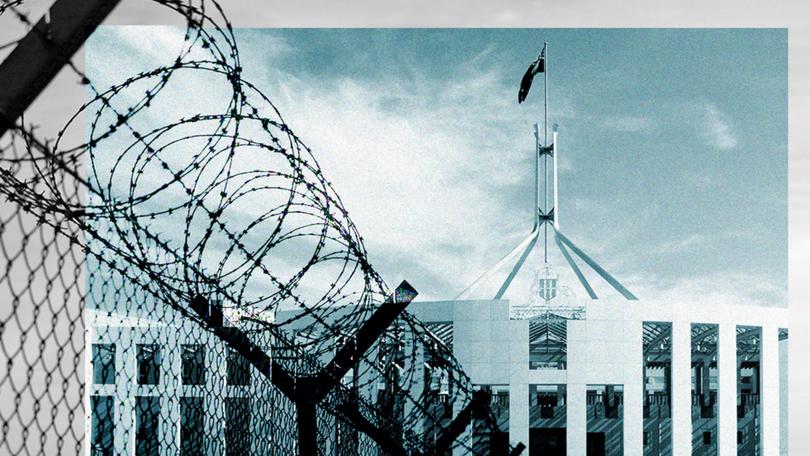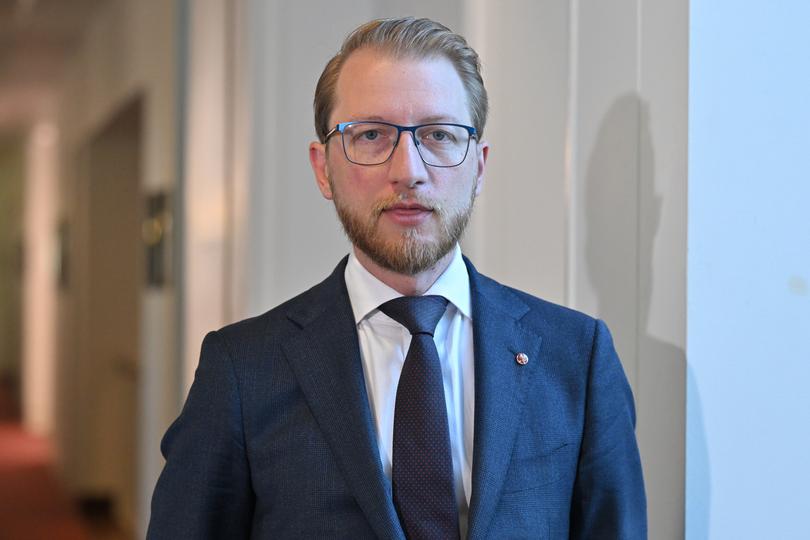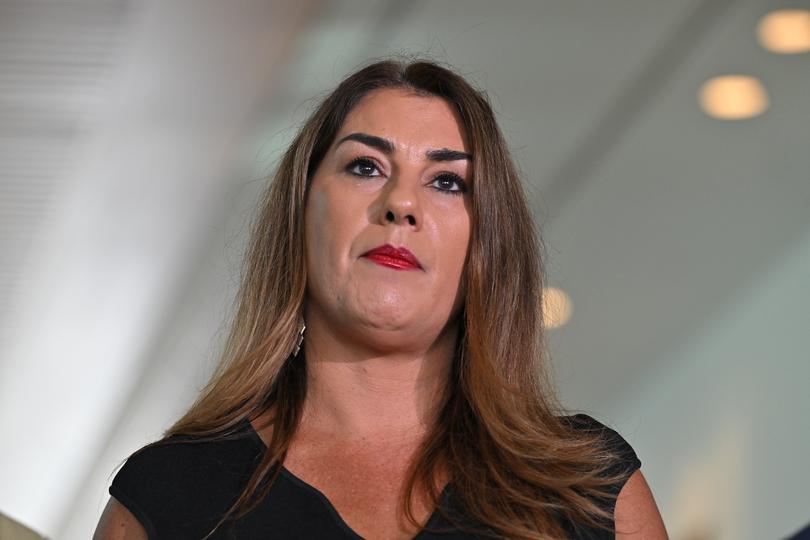Federal MP security under review amid growing threats to safety
Security arrangements for senior Federal politicians are being quietly reviewed amid heightened fears for the safety of public figures.

Security arrangements for senior federal politicians are being quietly reviewed amid heightened fears for the safety of public figures since the Voice referendum and outbreak of conflict in Gaza.
As the world reels from the attempted assassination of Donald Trump, The Nightly can reveal local authorities have for months been reviewing security protocols for Australia’s “high official holders”, which include the prime minister, ministers, opposition leader, deputy opposition leader, Governor-General, House Speaker and Senate president.
Internal Home Affairs documents show the review was ordered amid MP safety concerns following the bitter Voice to Parliament referendum and Hamas’ October 7 attack on Israel, and the subsequent conflict on Gaza.
Sign up to The Nightly's newsletters.
Get the first look at the digital newspaper, curated daily stories and breaking headlines delivered to your inbox.
By continuing you agree to our Terms and Privacy Policy.The two events has fuelled a surge in threats towards federal MPs, with reports to the Australian Federal Police reaching record levels.
The AFP reviewed the safety of federal MPs after the 2021 stabbing of British MP David Amess – the second British politician killed in public within five years after the murder of Jo Cox.
The new review, which is being conducted by AFP and Home Affairs, is examining the “personal and physical protective security” of the public figures, including at their offices and residences.
It has looked at the publication of their movements – known as “pattern of life” data - according to documents obtained under Freedom of Information.
In identical statements to The Nightly, the AFP and Home Affairs confirmed preliminary findings were expected to be finalised by the end of August but would not be publicly released due to their “sensitive nature”.
“The ability of elected officials to discharge their duties without fear of harm underpins Australian democratic principles,” the statement read.
“Events observed within the national and international security environment highlight the need to continually review protective security arrangements.”
Prime Minister Anthony Albanese has used the aftermath of Mr Trump’s shooting to appeal for the “temperature” of the political debate in Australia to be lowered.
Mr Albanese has warned Australia is not immune from the threat of political violence, arguing the attacks on federal MPs offices from pro-Palestine supporters could escalate into violence and must be condemned “unequivocally”.

Asked on Monday if the attempted assassination of Mr Trump heightened the risk of an attack in Australia, he said: “I certainly don’t think it lowers it”.
“I think that the problem with some of these events is that they can almost be normalised,” Mr Albanese told ABC Melbourne.
NDIS Minister Bill Shorten said the level of abuse targeted at federal MPs was the most “intense” he’d seen in his 17 years in parliament.
There were 725 reports of threats and harassment against federal MPs in the 11 months to May - almost triple the amount received by the AFP in entire 2020-21 year.
Outspoken Indigenous independent senator Lidia Thorpe was last year forced to flee her home after receiving death threats during the Voice to Parliament referendum.
She is still receiving support from the AFP, including during public events.
Senator Thorpe said political leaders needed to do more to tackle racism and misogyny, which she said fuelled the threats against MPs.
“We need more diverse representation in politics, but minorities, and particularly women of colour, are disproportionately harassed and threatened,” she told The Nightly.
“This is a daily occurrence for me. These risks are a real barrier to good people entering politics.”

Acting opposition leader Sussan Ley said she was “deeply concerned” about the level of political violence overseas.
“And I know that we are one of the best countries in the world when it comes to the ability of somebody who has been in politics, as I have for many years, to be able to walk down the street of any community in Australia, to talk to people to feel completely free, open and transparent in everything that I do,” she said.
“However, we have to be vigilant and I know that with the events that we’ve seen across the world, there will be implications for Australia
Shadow home affairs minister James Paterson said the review of protective security arrangements was “incredibly timely”.
“We must make sure that the resources and legislation are sufficient to prevent these attacks occurring in Australia,” he said.
“But political leadership is also essential. All leaders must call out this conduct before it escalates.”
